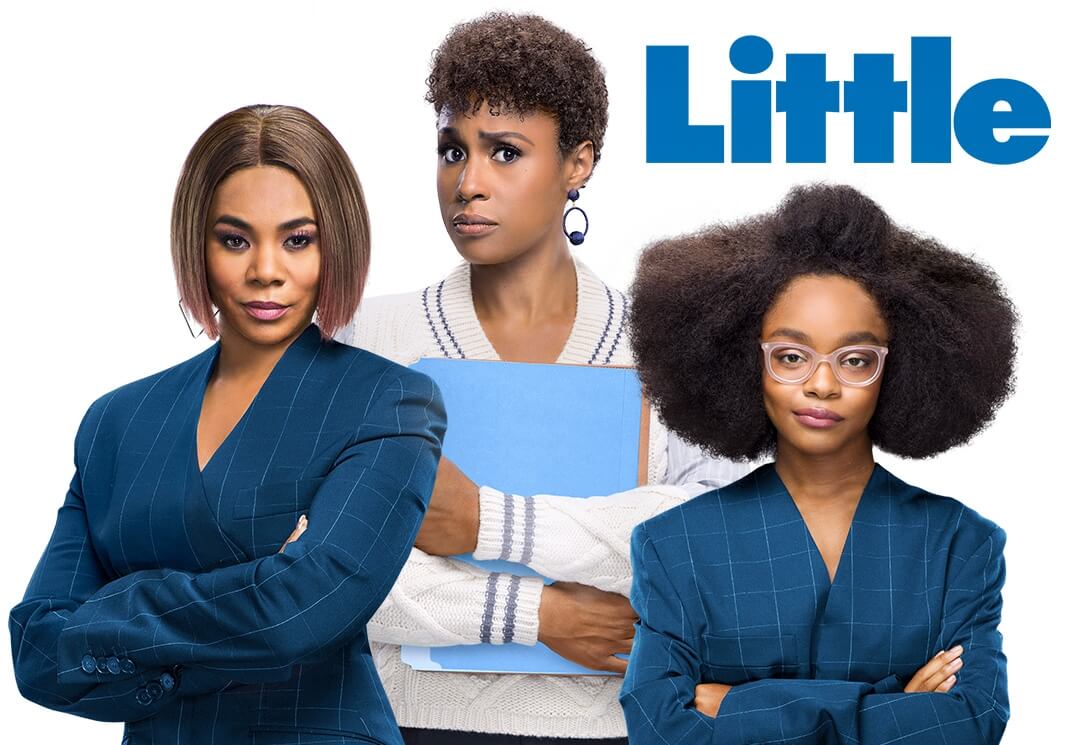When we hear a phrase like "little richard son," our thoughts might naturally wander to family connections or famous lineages. Yet, there is a fascinating aspect to such a phrase that goes beyond the immediate family tree. It makes us think about the word "little" itself, a word that, as a matter of fact, holds so many different shades of meaning. We use it every day, almost without thinking, to describe things that are not big, or perhaps a small amount of something. It is a word that appears quite simple on the surface, but it actually carries a surprising depth of uses and interpretations depending on how it is put into words.
Consider for a moment how often we encounter this particular word. From simple descriptions of size to more subtle indications of quantity or even duration, "little" shows up in all sorts of places. You might find it in a recipe, suggesting a touch of seasoning, or perhaps when talking about the weather, hinting at a light drizzle. It is a word that, in a way, shapes how we picture the world around us, helping us describe the scale of things, whether that is something you can hold in your hand or something you can barely see. Its presence in our language helps us paint pictures with words, allowing for a more precise way of talking about things.
This word, "little," really does have a rich life of its own in our language. It pops up in games we play, like those word puzzles where you piece together letters to find answers. It has a history, too, with some of its older meanings no longer in common use. So, when we hear "little richard son," it is not just about a person; it is also an invitation to look closer at the word "little" and all the interesting ways it works. It is, you know, a pretty common word, but it has a lot going on underneath the surface, making it quite a versatile tool for talking about the world.
Table of Contents
- What Does 'Little' Really Mean?
- Is 'Little' Always About Size?
- Can 'Little' Mean 'Not Much Time'?
- What Other Ways Can We Say 'Little'?
- Final Summary
What Does 'Little' Really Mean?
When we talk about the word "little," it has a story, a sort of linguistic life journey, if you will. Its most basic sense, the one that probably first comes to mind for most people, means something that is simply "not big." That is, you know, a pretty straightforward idea. We often use it to describe physical dimensions, like a very small dog or a rather small house. But the word is actually much more flexible than just that. It is a word that has been around for quite some time, and over the years, it has picked up a whole bunch of different uses, some of which are still with us today, and some that are not.
Think about how we might explain what "little" truly means. It is, in some respects, a word that helps us put things into perspective, especially when we are talking about size or scale. It sets a contrast, really, to things that are large or extensive. You might say a "little" book is one that is thin and easy to carry, unlike a big, heavy volume. This simple meaning, "not big," forms the core of its identity, but it is just the starting point for all the other ways this word gets used. It is pretty interesting, if you think about it, how one word can carry so much descriptive weight.
How We Use 'Little' in Everyday Talk
The ways we bring "little" into our daily conversations are, you know, quite varied. It is not just about how big something is. We use "little" to talk about quantities, feelings, and even time. This word, "little," has a lot of different jobs it performs in our sentences. Here is a sort of breakdown of how this versatile word shows up, giving you a better idea of its many applications in language, especially when we consider phrases like "little richard son" and what "little" might imply there.
| Aspect of 'Little' | Description and Examples |
|---|---|
| Size or Amount | This is the most common use. It means something is small in its physical dimensions or a small quantity of something. For instance, a "little" present might not be of great size, or a "little" amount of food is just a small serving. You could say, "There was just a little rain on a cloudy day," meaning not a lot of water came down. |
| Usage with Uncountable Nouns | "Little" is typically paired with things you cannot count individually, like "water" or "sugar." You would say "a little water," but "few" for things you can count, like "few apples." A chef might add "a little salt" to a recipe, not "a few salts," because salt is treated as a mass. |
| Intensity or Degree | We often use "little" to soften or lessen the impact of something. You can put words like "so," "too," and "very" right in front of "little" to change its emphasis. For example, "so little time" suggests a very limited duration, or "too little effort" means not enough exertion was put in. It is almost like saying "just a bit." |
| Duration or Extent | Sometimes, "little" talks about how short something is in terms of time or how far it goes. A "little" walk might mean a short stroll, not a long hike. Or a "little" wait means you will not be standing around for a long period. It is about a brief moment or a limited stretch. |
| With or Without Articles | The word "little" can stand alone or come with "a." When you say "a little," it often emphasizes that there is indeed some amount, even if it is not much. "There is a little hope" sounds more encouraging than "There is little hope," which suggests almost no hope at all. It is a subtle difference, but it matters. |
| Synonym for Small | At its core, "little" is a word that means "small." It is a basic way to describe something that is not large. You can find many other words that mean something similar, but "little" remains a very common and simple choice for this purpose. |
Is 'Little' Always About Size?
You might think that when someone says "little," they are always talking about how big or small something is, like a "little" toy or a "little" dog. But that is not always the case, you know. The word "little" actually has a much broader range of uses than just describing physical dimensions. It can be about how much of something there is, or even how much importance something holds. It is a bit like a chameleon, changing its meaning ever so slightly depending on the words it hangs out with. So, while size is definitely one of its main gigs, it is by no means its only one.
Consider for a moment how "little" can apply to things that do not have a physical size at all. We might talk about having "little" patience, which is not about a small object, but rather a small amount of a feeling or a quality. Or perhaps someone has "little" experience, meaning they do not have much of it. These uses really show how flexible the word is, moving beyond just the tangible. It is quite interesting how a word that seems so simple can, in fact, carry such varied implications in our conversations, making it more than just a size descriptor.
When 'Little' Describes Amount
One common way "little" steps beyond just talking about physical size is when it refers to a quantity, a measure of how much of something there is. This is particularly true when we are dealing with things that are not easily counted as separate items, like liquids or abstract concepts. For example, a chef might add "a little salt" to a recipe, meaning a small quantity of salt, not a small piece of salt. Or, there might be "a little rain" on a cloudy day, which points to a small volume of precipitation, not individual raindrops. This usage is, you know, pretty common in everyday speech, making it easy to convey slight quantities.
When you hear a phrase like "little richard son," and you think about the word "little" in terms of amount, it could, arguably, imply a small measure of something related to that person. Perhaps a small amount of information is known, or a modest degree of fame compared to someone else. It is not about their physical stature but about the extent or quantity of something associated with them. This shows how "little" can be quite useful for talking about things that are not countable, helping us describe a modest portion of something. It is a very handy word for those times when you do not need to be precise, but just need to convey a sense of slightness.
Can 'Little' Mean 'Not Much Time'?
It is fascinating how words can take on different jobs, is that not so? "Little" is one of those words that can surprise you with its range. While we often think of it for size or amount, it can also refer to a duration, meaning something that is "short in extent or duration." So, if you say you have "a little time" before an appointment, you are not talking about a small physical object, but rather a brief period. This is a pretty common way we use the word, allowing us to describe moments that pass quickly or do not last for very long. It is, in a way, a time-telling word, too.
Think about a scenario where someone might have "little patience" for something. Here, "little" is not about a small object called patience, but about a limited amount of time they are willing to wait or endure. Or, if a story is described as "a little long," it means it extended for a bit more time than preferred. This usage of "little" to describe duration or brevity is quite useful for conveying how short or limited something is in terms of its temporal span. It is a subtle but important part of how we communicate about the passage of moments, making the word quite versatile.
The Nuances of 'Little' in Phrases
When "little" gets together with other words to form phrases, it can take on even more specific shades of meaning, especially when we think about how it might apply to a concept like "little richard son." Sometimes, the emphasis is on the fact that there is *indeed* some amount, even if it is not much, particularly when it comes with an indefinite article like "a." For example, "a little bit" means a small quantity, but it confirms its presence. This is different from just saying "little," which can sometimes imply almost none at all. The difference between "little hope" and "a little hope" can be quite significant, you know, in terms of outlook.
You can also use words like "so," "too," and "very" right in front of "little" to really drive home the point about its smallness or limited nature. "So little" might suggest a surprisingly small amount, while "too little" implies an insufficient quantity. "Very little" simply emphasizes the extreme lack. These combinations allow us to express degrees of smallness or scarcity with more precision. So, if you were to consider "little richard son" in a phrase, the meaning of "little" would depend on its companions, perhaps suggesting a modest public profile or a limited connection to a grand legacy, depending on the context. It is really all about the surrounding words, as a matter of fact.
Exploring 'Little' in Word Games
For those who really enjoy puzzles that play with words, like crossword puzzles, word finds, or anagram games, the word "little" shows up quite often. It is a common word, so it naturally appears in these sorts of challenges. In a game called "7 little words," for instance, the word "little" itself is part of the name, suggesting that small clues or small pieces of information lead to bigger answers. This kind of game relies on our general knowledge of words and their meanings, and "little" is a pretty fundamental one, so it is a good candidate for inclusion. It is, you know, a very common building block in our language.
The fact that "little" has so many different meanings—the Oxford English Dictionary lists, apparently, 50 entries for it, with some now considered old-fashioned—makes it a rich subject for wordplay. Puzzlemakers can use its various senses to create clever clues that might trick you at first glance. You might think of size, but the answer could be about amount or duration. This variety makes "little" a versatile tool in the world of word puzzles, challenging players to think beyond the obvious. It is almost like a hidden gem in the world of language, revealing its many facets through careful thought.
How 'Little' Connects to Puzzles
When you are tackling a word puzzle, especially one where you are trying to find hidden words or unscramble letters, the concept of "little" can be quite central. If a puzzle is about "little richard son," it might be a play on the word "little" itself, asking you to think about its various definitions. The game "7 little words" is a perfect example; it is built around the idea of small clues leading to a solution. This is where the many meanings of "little" come into play, making the puzzle more interesting and, you know, a bit more challenging.
The different ways "little" can be used—whether it is about something not being big, or a small amount of something, or even a short duration—provide a lot of material for puzzle creators. They can use these varying definitions to craft clues that require you to really consider the word's full range. So, when you see "little" in a puzzle, it is not just about its most obvious meaning; it is an invitation to explore its deeper linguistic connections. It is quite clever, really, how such a common word can be used to create such engaging mental exercises, making you think about every possible interpretation.
What Other Ways Can We Say 'Little'?
Our language is, you know, quite rich with options, and for almost any word, there are many others that mean something similar. "Little" is no exception. If you are looking to describe something that is not big, or a small amount of something, you have a lot of choices. This variety allows us to express ourselves with more nuance and to avoid repeating the same word over and over again. It is a bit like having a whole toolbox of words, each one slightly different, for just the right job. So, if you want to talk about something being small, you have many ways to go about it, actually.
The ability to choose from many different words that share a similar meaning is a powerful aspect of language. It helps us to make our writing and speaking more interesting and more precise. For a word like "little," which has so many applications, having a wide selection of alternatives means you can always pick the word that best fits the specific idea you are trying to get across. This makes communication much more effective and, you know, more enjoyable for both the speaker and the listener. It is a testament to the flexibility of our vocabulary, really.
Finding Different Words for 'Little'
If you are trying to find other ways to express the idea of "little," perhaps when talking about something like "little richard son" and wanting to vary your phrasing, there are, apparently, hundreds of options. Resources like a thesaurus can help you find over 800 different words that are related to "little," along with words that mean the opposite. This huge selection means you can always find just the right word to fit your message, whether you are talking about size, amount, or duration. It is pretty amazing how many choices we have for such a common concept, as a matter of fact.
Having so many synonyms for "little" means you can pick a word that carries a slightly different feeling or a more specific meaning. Instead of always saying "little," you might choose a word that suggests something tiny, or something minimal, or something that is not very important. This allows for a richer and more detailed description, helping your audience get a clearer picture of what you are trying to convey. It is a great way to make your language more expressive and, you know, more engaging for anyone who is listening or reading. This variety is what makes language so powerful, really.
Final Summary
This article explored the word "little," moving beyond its simple meaning of "not big" to uncover its many uses in our language. We looked at how "little" describes small amounts, as in a chef adding "a little salt," or brief durations, like having "a little time." The discussion touched on how "little" is used with uncountable nouns and how adding articles like "a" can change its emphasis. We also saw how "little" plays a role in word games, like "7 little words," and how its numerous meanings make it a versatile tool for puzzles. Finally, the piece highlighted the vast number of synonyms available for "little," allowing for varied and precise expression.


